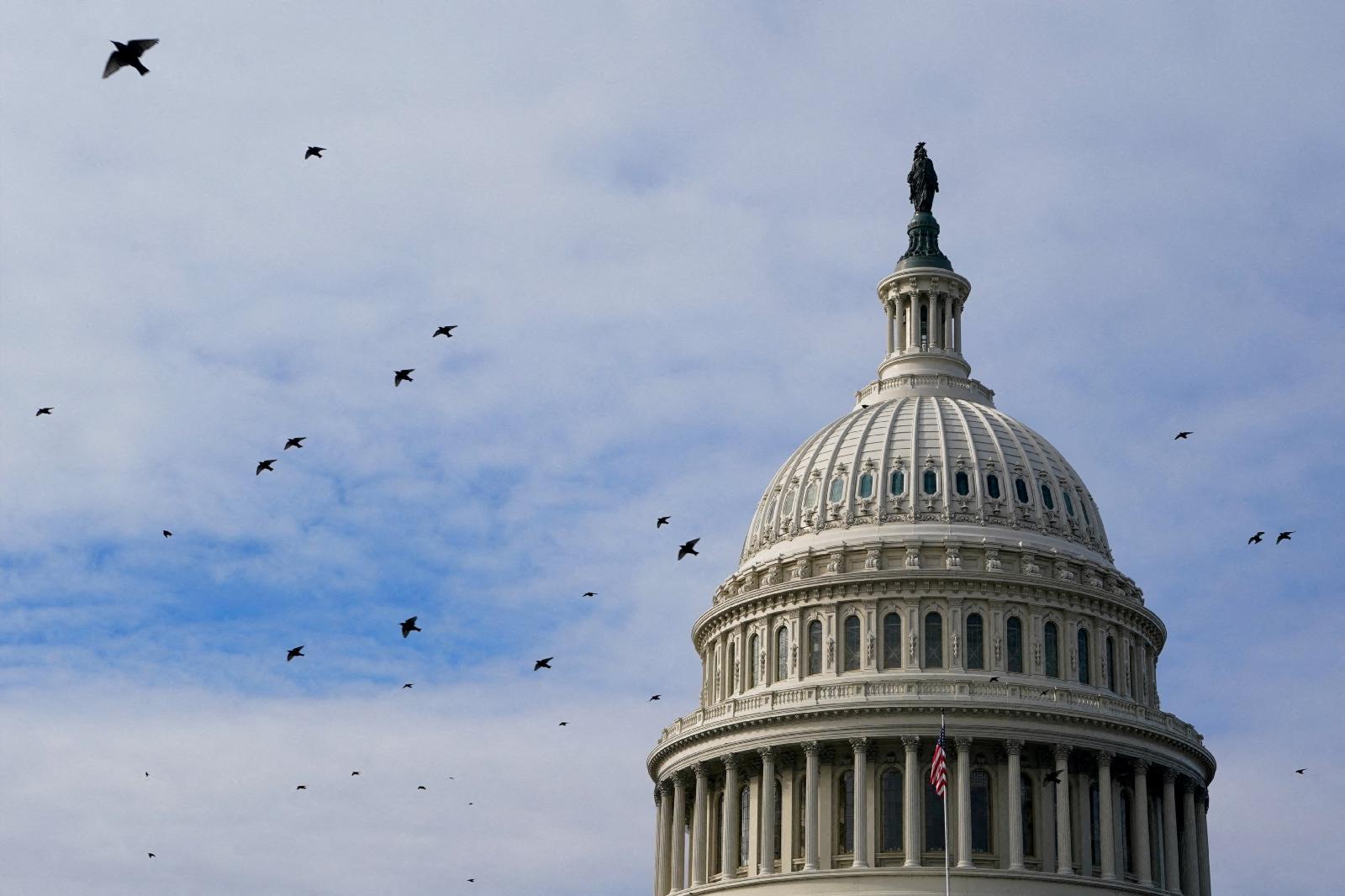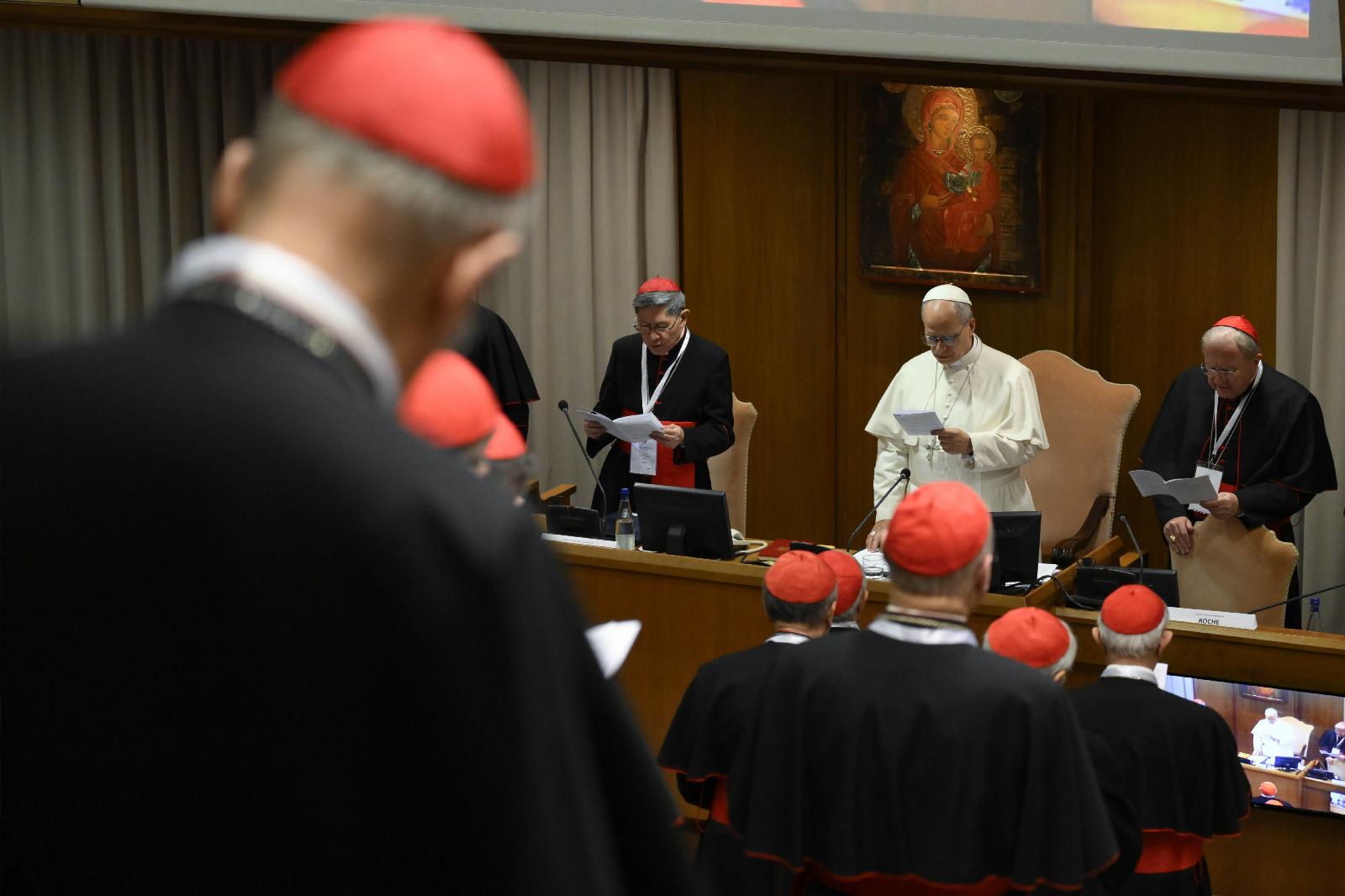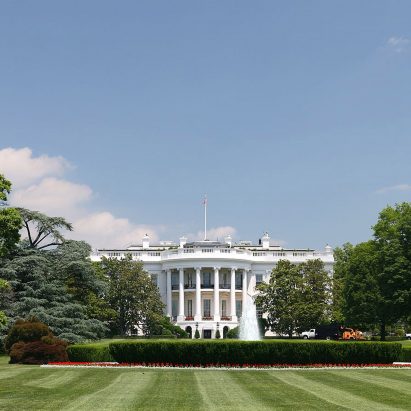Low on sanctions ammo against Putin, EU pins hopes on Trump
The European Union is drafting new measures designed to squeeze Russia’s ailing war economy. But, having already committed to a phaseout of oil and gas imports, the bloc is increasingly aware it is Washington, not Brussels, that is best placed to turn the screws.
According to four European diplomats, granted anonymity to shed light on closed-door discussions, the latest round of sanctions is not expected to include major new restrictions on the energy sales that fund Russia’s war against Ukraine.
The package, the 19th to be imposed on Moscow since it launched its full-scale invasion in February 2022, is set to be unveiled next month and will instead target ‘shadow fleet’ vessels and companies helping Russia circumvent existing rules.
The most painful consequences for Moscow would come if secondary sanctions — on companies or countries that do business with Russia — are imposed, but the real impact of those will come from the U.S.
Many observers argue Russian President Vladimir Putin only engaged with Donald Trump in Alaska after Washington introduced high tariffs against India over its purchase of Russia’s economic lifeblood: oil. The dramatic next step would be to escalate similar sanctions to throttle Russia’s all-important trade with China.
Trump appears to be leaving this option on the table if peace talks fall through.
“Over the next two weeks, we’re going to find out which way it’s going to go. And I better be very happy,” Trump said on Friday, threatening “massive sanctions or massive tariffs or both” if Moscow doesn’t play ball.
Running out of things to sanction?
EU member countries in June gave the green light to a lower price cap on Russia’s oil; a ban on fuel refined from its crude; and the blacklisting of companies linked to the Nord Stream gas pipelines. Along with a new roadmap to phase out all energy imports from the country, that leaves the bloc with few remaining tools of its own to squeeze Moscow harder.
“We don’t expect there will be much room for any material Russian oil sanctions in the EU’s 19th sanctions package,” said Ajay Parmar, lead crude market analyst at commodities intelligence firm ICIS. “The last sanctions package was a significant one for Russian oil and we think there is little scope for further sanctions at this point.”
Maria Shagina, a sanctions expert at the International Institute for Strategic Studies, said that while the Russian economy looks “superficially resilient,” it is already creaking under Western pressure.

“Lower oil prices, the stagnation in the military-industrial sector, looming banking crisis and ever-growing military expenses put the Russian economy on the course of recession,” she said. “Sanctions on the Russian shadow fleet is one of many factors.”
Secondary sanctions of the kind that could be imposed by the U.S. on companies dealing with Russian firms “would dramatically exacerbate the existing problems of the Russian economy. However, the Kremlin doesn’t buy the Trump administration’s threats, so it thinks it can weather the storm for now.”
‘Carthage must be destroyed’
Yet, other measures to degrade Russia’s capabilities are being considered, including a ban on its diplomats being allowed to travel without restrictions around the Schengen free travel area. Proponents say that total freedom makes it harder to track intelligence officers who could be planning hostile acts far from the country that issued their visa.
“Just like Cato the Elder kept repeating that Carthage must be destroyed, I will keep proposing to end the free movement of Russian diplomats in Schengen,” Czech Foreign Minister Jan Lipavský told POLITICO. “It is an unnecessary advantage we give to the Russian regime, and it is being abused to facilitate sabotage operations.”
Foreign ministers from across the bloc will meet at an informal summit later this week, where a discussion is scheduled with the EU’s top diplomat, Kaja Kallas, on how to sharpen economic restrictions on Russia.
In the meantime, Ukraine is taking concrete action to drain Moscow’s war chest, hitting refineries across Russia and tipping its key source of state funds into crisis. Over the weekend, drones hit a pumping station on the Druzhba pipeline, halting deliveres of Russian oil to Kremlin-friendly EU states Hungary and Slovakia. Budapest and Bratislava have written to the European Commission demanding it intervene to prevent future attacks.
Officials have made it clear they are unlikely to weigh in. “What is important, is the suspension does not affect the security of supply, which was always a priority for the European Commission,” said spokesperson Eva Hrnčířová.
While Slovakia and Hungary have consistently opposed the expansion of sanctions on Russia, and are fighting a political battle over the planned phaseout, diplomats are confident they can pressure them to give the unanimous support needed for the 19th package.
“Just look at what’s happened the last 18 times,” said one envoy.




















:quality(85):upscale()/2023/09/18/918/n/1922398/a1136b676508baddc752f5.20098216_.jpg)
:quality(85):upscale()/2025/10/09/670/n/1922283/00b944c868e7cf4f7b79b3.95741067_.jpg)
:quality(85):upscale()/2025/10/15/765/n/1922398/29c37a6e68efd84bb02f35.49541188_.jpg)
:quality(85):upscale()/2025/09/09/891/n/1922283/7222624268c08ccba1c9a3.01436482_.png)
















